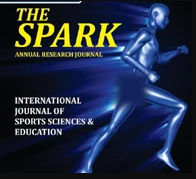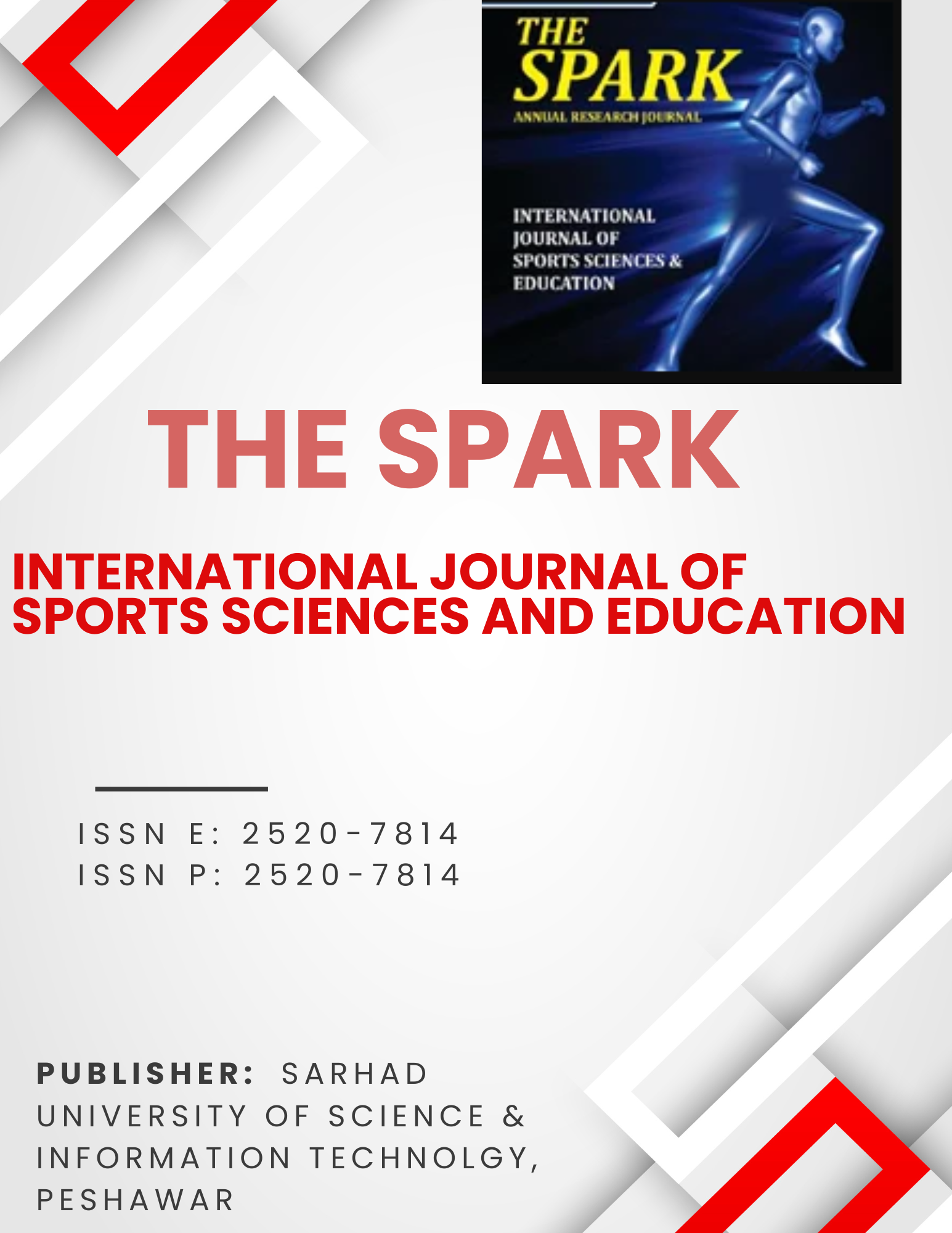RELATIONSHIP BETWEEN SOCIAL CONTROL AND SPORTS
Keywords:
Social Control, Sports, Cultural values, social behaviorAbstract
The main objective of the study is to evaluate the effects and relationship between social control and sports. Social control is extremely basic for each general public. Without social control, society and in addition individual can't exist. Hence, the need of social control is exceptionally basic. Social control is important for the presence and association of a general public. Players learn violent strategies from sports, this give them a better cure for deviant behaviors. players learns how to obey the laws in sports this enables to develop discipline in society and help to promote cultural values and also it help to develop better instruction among people. Sports are a useful to create accountability environment in society. Results of this research work showed that the sports have positive effect on social control.
References
Abrams, D., and Hogg, M. A. (1990). Social identification, self-categorization and social influence. European review of social psychology, 1(1), 195-228.
Alosi, M. (2007). The Evolution of the Social Functions of Sports and the Advent of Extreme Sports.
Bandura, A. (1989). Human agency in social cognitive theory. American psychologist, 44(9), 1175.
Bull, H. (2012). The anarchical society: a study of order in world politics. Palgrave Macmillan.
Capretto, A. D. (2011). Hazing In Sport: Evaluation of an Educational Workshop.
Castells, M. (2011). The rise of the network society: The information age: Economy, society, and culture (Vol. 1). John Wiley and Sons.
Chelladurai, P. (2007). Leadership in sports. Handbook of sport psychology, 3, 113-135.
Eisenberg, P., and Lazarsfeld, P. F. (1938). The psychological effects of unemployment. Psychological bulletin, 35(6), 358.
Eitzen, D. S. (2000). Social control and sport. Handbook of sports studies, 370-381.
Eitzen, D. S. (2016). Fair and foul: Beyond the myths and paradoxes of sport. Rowman and Littlefield.
Fiatarone, M. A., O'neill, E. F., Ryan, N. D., Clements, K. M., Solares, G. R., Nelson, M. E., ... and Evans, W. J. (1994). Exercise training and nutritional supplementation for physical frailty in very elderly people. New England Journal of Medicine, 330(25), 1769-1775.
Field, R., and Kidd, B. (2016). Canada and the Pan-American Games. The International Journal of the History of Sport, 33(1-2), 217-238.
Firth, R. (2013). Elements of Social Organisation. Routledge.
Goodhue, D. L., and Thompson, R. L. (1974). Task-technology fit and individual performance. MIS quarterly, 213-236.
Griffin, P. (1995). Homophobia in sport. The gay teen: Educational practice and theory for lesbian, gay, and bisexual adolescents, 53-65.
Guttmann, A. (2003). Sport, politics and the engaged historian. Journal of Contemporary History, 38(3), 363-375.
Hargreaves, J. (2000). Freedom for Catalonia?: Catalan Nationalism, Spanish Identity and the Barcelona Olympic Games. Cambridge University Press.
Hargreaves, J. A. (1986). Where's the virtue? Where's the grace? A discussion of the social production of gender relations in and through sport. Theory, Culture and Society, 3(1), 109-121
Hart, G.and C., Away (1968). 'The bars, the bogs, and the bushes': the impact of locale on sexual cultures. Culture, Health and Sexuality, 2(1), 69-86.
Hughes, R., and Coakley, J. (1991). Positive deviance among athletes: The implications of over conformity to the sport ethic. Sociology of sport journal, 8(4), 307-325.
Jowett, S. (2003). When the “honeymoon†is over: A case study of a coach-athlete dyad in crisis. The Sport Psychologist, 17(4), 444-460.
Kidd, B. (1991). How do we find our own voices in the “new world order� A commentary on Americanization. Sociology of Sport Journal, 8(2), 178-184.
Mangan, J. A., and Park, R. J. (2013). From fair sex to feminism: Sport and the socialization of women in the industrial and post-industrial eras. Routledge.
Margold, C. W. (1926). The Need of a Sociological Approach to Problems of Sex Conduct: III. The Invariable Presence of Social Control in Man's Sexual Conduct. American Journal of Sociology, 31(5), 634-656.
Nafziger, J. A., and Strenk, A. (1977). The political uses and abuses of sports. Conn. L. Rev., 10, 259.
O'Neill, J. (1986). The disciplinary society: from Weber to Foucault. British Journal of Sociology, 42-60.
Sage, G. H. (1997). Physical education, sociology, and sociology of sport: Points of intersection. Sociology of Sport Journal, 14(4), 317-339.
Stich, R. (2006). Those ugly Americans: 20th and 21st centuries. Silverpeak Enterprises.
Swift, T. (1995). Trust, reputation and corporate accountability to stakeholders. Business Ethics: A European Review, 10(1), 16-26.
Downloads
Published
How to Cite
Issue
Section
License
Submission of an original manuscript to the Journal will be taken to mean that it represents original work not previously published, that it is not being considered elsewhere for publication. And if accepted for publication, it will be published in print and online and it will not be published elsewhere.
The journal main policy reflects in its stance that the publication of scholarly research is exclusively meant to disseminate knowledge and not-for-purposes.








 Name of Journal:
Name of Journal: 